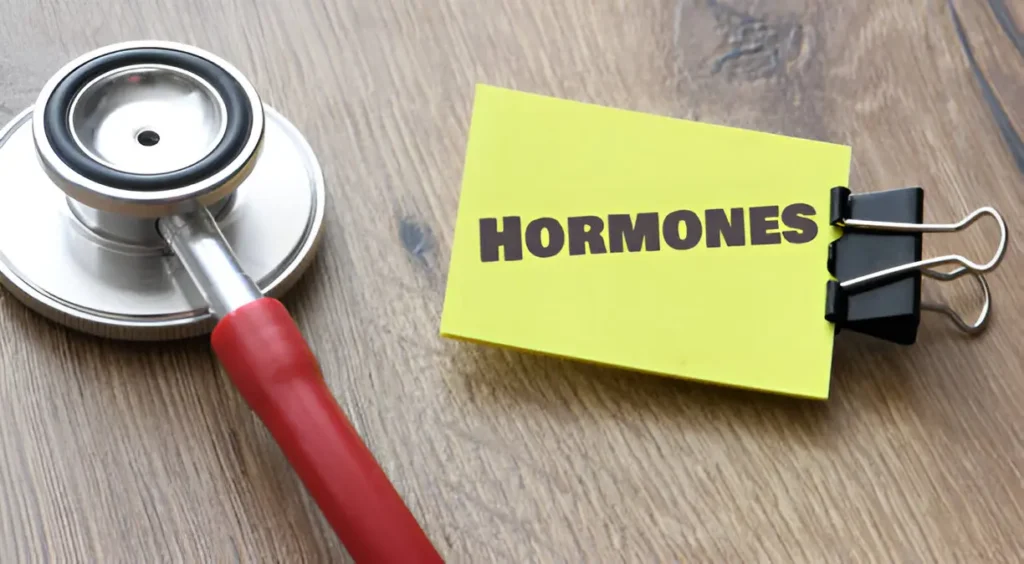Hormones regulate vital bodily functions like metabolism, sleep, mood, energy, fertility, and weight. An imbalance in just one can cause confusing and frustrating symptoms. If you’ve felt “off” without a clear reason, a hormonal imbalance could be the culprit. Knowing the signs and available tests can lead to answers. Whether you’re researching symptoms or seeking hormone imbalance support in Lake Forest, this article will cover the signs, testing options, and diagnostic approaches healthcare professionals use.
Common Signs That Point to Hormonal Imbalance
Hormonal shifts can manifest subtly or severely, impacting individuals uniquely. Here are frequent symptoms indicating hormonal imbalance:
- Unexplained fatigue: Feeling tired even after a full night of sleep
- Weight changes: Gaining or losing weight without major changes in diet or activity
- Sleep disturbances: Trouble falling asleep, staying asleep, or waking up feeling unrested
- Mood swings or anxiety: Emotional highs and lows that feel unpredictable
- Low libido: A noticeable drop in sexual desire or function
- Hair thinning or hair loss: Especially at the crown or temples
- Irregular periods: Cycles that are too long, too short, or completely absent
- Dry skin or acne: Skin changes that seem out of the norm for your age or routine
- Brain fog: Trouble concentrating or feeling mentally sluggish
- Hot flashes or night sweats: Especially during perimenopause or menopause
If these issues sound familiar and have persisted for more than a few weeks, it’s time for a deeper look. These symptoms often signal your body needs attention.
What Causes Hormonal Imbalance?
Hormonal imbalances can stem from a variety of conditions or life phases. Some of the most common include:
- Thyroid dysfunction: Both underactive (hypothyroidism) and overactive (hyperthyroidism) thyroids can lead to many of the symptoms above.
- Menopause or perimenopause: Estrogen and progesterone levels begin to shift, often causing hot flashes, mood changes, and sleep issues.
- Polycystic Ovary Syndrome (PCOS): A common condition in women of reproductive age, often linked to irregular cycles, acne, and weight gain.
- Adrenal fatigue or dysfunction: Chronic stress may impact cortisol levels and leave you feeling drained.
- Insulin resistance: Can be an early indicator of prediabetes or metabolic syndrome.
- Chronic conditions or medication side effects: Some illnesses and drugs affect hormone production or balance.
Identifying the cause is key to developing an effective treatment plan tailored to your needs.
Key Hormone Tests Doctors May Order
If you decide to get tested, your provider will likely order a combination of blood tests based on your symptoms and history. Some of the most common hormone tests include:
- Thyroid panel: Includes TSH, T3, and T4 to check thyroid function
- Cortisol test: Measures stress hormone levels; can be done with blood, saliva, or urine
- Sex hormone panel: Looks at estrogen, progesterone, testosterone, and DHEA levels
- Insulin and glucose testing: Helps assess metabolic health and insulin resistance
- FSH and LH: Key for assessing fertility and menopausal status
- Prolactin: High levels may indicate issues with pituitary function
- Vitamin D and B12: While not hormones, deficiencies can mimic hormonal symptoms
These tests are often done in the morning when hormone levels are most stable. Your provider will help determine which ones are most relevant based on your health profile.
What to Expect During the Evaluation Process
Once tested, your provider will combine lab results with your symptoms, lifestyle, family history, and medications. “Normal” hormone levels may still be too high or low for your unique needs. Providers offering thorough, whole-person evaluations make a big difference. If you’re experiencing changes or don’t feel like yourself, seeking help for hormone imbalances can provide expert care and guidance.
Treatment may include:
- Hormone replacement therapy (HRT)
- Thyroid medications
- Lifestyle changes like stress management, exercise, and nutrition
- Supplements to support adrenal or reproductive health
- Targeted medications for PCOS or insulin resistance
The right plan depends on your symptoms, test results, and long-term health goals.
When to Seek Help
If symptoms disrupt your daily life, relationships, or function, seek help. Early intervention improves outcomes and prevents serious health issues.
You should consider seeing a professional if:
- Your fatigue is persistent and unrelieved by rest
- You’ve gained or lost weight with no clear reason
- Your menstrual cycle has changed drastically
- You’re experiencing sudden mood changes or brain fog
- You have a family history of hormonal or thyroid disorders
Talking to your provider about your symptoms and asking for testing is the first step toward understanding your body better.
Conclusion
Hormonal balance is essential to your overall well-being. When something feels off, it’s often your body’s way of signaling a deeper issue. Paying attention to these signs and seeking proper evaluations can help you take charge of your health. If you suspect a hormone imbalance, don’t hesitate to seek support. With the right testing and guidance, you can gain clarity and start feeling like yourself again.
Also Read-10 Key Stats Ahead of the FIFA Club World Cup 2025 Final: Chelsea vs PSG
